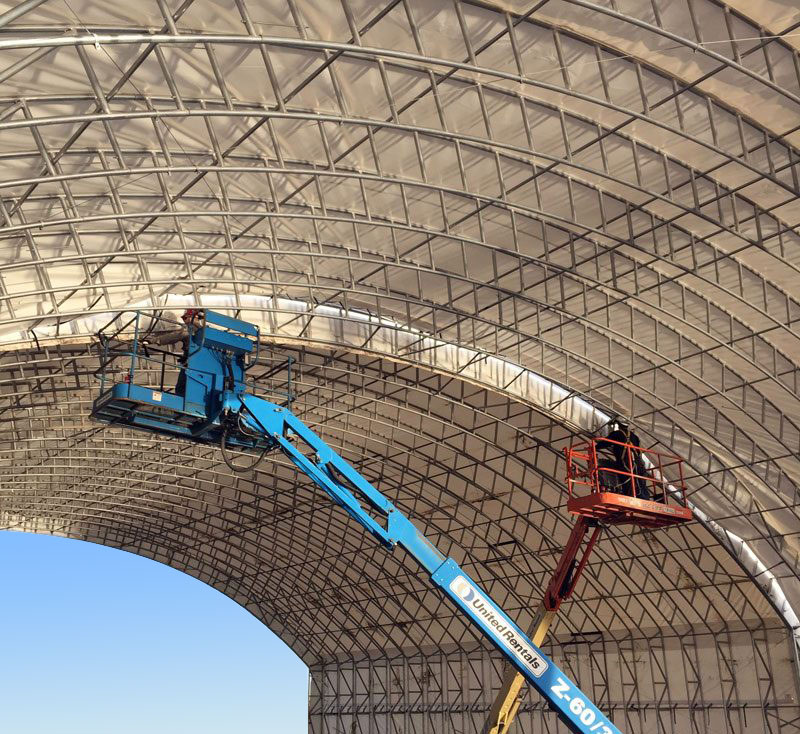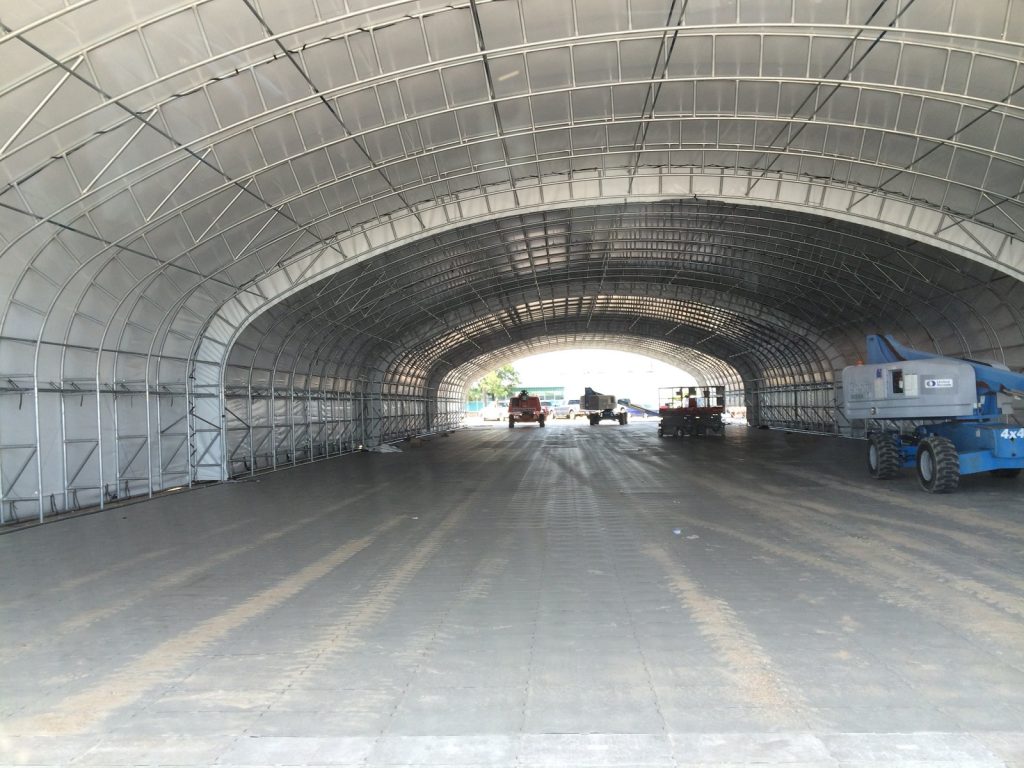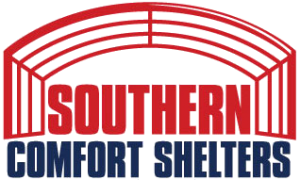Industrial Tent Systems vs Traditional Structures

In an era of rapid business expansion and evolving needs, choosing the right structure for your organization is crucial. Whether it's for a temporary warehouse, operations, or hosting events, the type of structure you choose can greatly impact your costs and overall productivity. In this blog post, we will dive into the cost-benefit analysis of industrial tent systems and traditional structures, helping you make an informed decision based on your specific needs.
Traditional Structures
Traditional structures refer to permanent buildings constructed using materials like concrete, steel, or wood. These structures are designed for longevity and typically include warehouses, offices, and factories among others.
Some of the key characteristics of a traditional permanent structure include their robust nature, permanence, and their ability to withstand various environmental conditions. They are often equipped with HVAC systems, and plumbing, and are generally more insulated and secure.
However, traditional structures also come with their own set of drawbacks. The initial cost for building these structures can be high, involving high expenses for materials, labor, and time. Construction can take several months to complete, depending on the size and complexity of the project. Additionally, these structures are typically immovable, requiring a fixed plot of land and limiting flexibility.
Industrial Tent Systems
Temporary industrial tents, also referred to as fabric buildings or tension fabric buildings, are flexible solutions designed to meet a wide range of needs across various industries. They can serve as a semi-permanent or short-term temporary structure for various purposes.
These tent systems are characterized by their durability, adaptability, and swift installation process. Made from robust materials, a clear span tent is engineered to withstand diverse environmental conditions. They offer a high degree of flexibility, allowing for quick set-up, dismantle, and relocation as per your business needs. Some industrial tent systems also come with features like insulated walls and built-in HVAC systems, enhancing their functionality.

Industrial Tent vs. Traditional Building Cost Analysis
Traditional Structures: The cost of constructing a traditional building can be substantial. Expenses typically include the price of the land (if not already owned), architectural and engineering fees, construction materials, labor costs, and the cost of permits and inspections. In addition, once the building is completed, there will be ongoing costs for maintenance, repairs, utilities, and potential property taxes. Furthermore, the time taken to construct the building, which can often span several months or longer, can also translate into indirect costs for your business.
Industrial Tent Systems: On the other hand, industrial tent systems generally have a lower upfront cost. They can be rapidly installed and disassembled, reducing labor costs, and minimizing downtime. While they do require maintenance, these costs are typically lower than for traditional structures. Plus, if the tent is rented or leased, you may not have to worry about maintenance at all. Additionally, because these are temporary structures, property taxes are usually not a concern.
From a purely financial standpoint, industrial tent systems often present a more cost-effective solution, especially for businesses needing flexibility or a shorter-term solution.
Benefit Analysis
While cost is a key factor in decision-making, it's equally important to understand the functional benefits of both traditional structures and industrial tent systems.
Traditional Structures:
Traditional structures, given their permanence and robust nature, offer several significant benefits. Firstly, they provide excellent insulation and a higher level of security, making them ideal for storing sensitive items or operating in extreme weather conditions. They are also able to accommodate more complex infrastructure which can be especially useful in industries where such systems are essential for operations.
Industrial Tent Systems:
Industrial tent systems shine in their versatility and adaptability. They can be set up swiftly, often within a matter of days, which is considerably faster than the construction time for traditional structures. This allows businesses to respond quickly to changing needs, whether it's an unexpected increase in inventory, a sudden need for operational storage space, or for an upcoming short-term project.
Industrial tent systems can be easily relocated or reconfigured, providing a level of flexibility that is simply unattainable with traditional buildings. This makes them ideal for businesses that operate in a dynamic environment or those that need temporary solutions regularly.
Though they may not offer the same level of insulation or security as traditional structures, many modern industrial tents come equipped with features like heavy-duty walls, HVAC systems, and secure locking systems, making them quite resilient and suitable for a wide range of uses.
Factors to Consider When Choosing Between a Traditional Structure and an Industrial Tent
Your choice between a traditional structure and a fabric structure will likely depend on several key factors, including:
Duration of Use: If you need a structure for a short term or for a project with an uncertain timeline, an industrial tent system can be an ideal solution. On the other hand, if you're planning for long-term usage, a traditional structure may be a better fit.
Purpose: The intended use of the structure plays a vital role in your decision. For instance, if you're planning to install heavy machinery or require substantial insulation, a traditional structure might be more suitable. Alternatively, if you need flexibility, a temporary building might serve you better.
Location: Consider the geographical and environmental factors of your location. For example, if you're operating in an area with extreme weather conditions, a traditional structure would provide better protection. However, if your business frequently changes locations, an industrial tent system offers the mobility you need.
Budget: Lastly, your budget will inevitably influence your choice. Industrial tents can be more cost-effective, especially for short-term use, while traditional structures can be a worthwhile investment for long-term needs. Renting an industrial tent could provide even more cost savings.
Conclusion
Choosing between traditional structures and industrial tent systems is not a one-size-fits-all decision. It involves carefully considering your business needs, budget, and future plans. While traditional structures offer permanence, enhanced security, and insulation, industrial tent systems shine with their adaptability, quick setup, and cost-effectiveness. Each has its place and utility, and the best choice will depend on the unique context of your business.
For more personalized advice, feel free to reach out to our team of experts. We'd be happy to discuss your building requirements and help you choose the perfect tent for your specific need. Visit our tent rental page for more information about short and long-term tent rentals.
Industrial Tent FAQs
Is it cheaper to purchase an industrial tent or to build a traditional structure?
The cost can vary greatly depending on the specific needs of your business. Generally, the upfront cost of an industrial tent system is lower than that of a traditional structure, making it a cost-effective solution for short-term use or situations that require flexibility.
How long does it take to set up an industrial tent system?
The setup time for an industrial tent system can vary depending on its size and complexity, but it's typically much faster than constructing a traditional building. Many industrial tents can be set up within a few days to weeks.
Can industrial tent systems withstand harsh weather conditions?
Yes, modern tent fabric is designed with durable PVC fabric materials to withstand various weather conditions. Our tents withstand up to 90mph wind gusts. Our design experts will work with you to ensure your specifications can be met.
Are industrial tent systems secure?
While they might not offer the same level of security as traditional structures, many industrial tent systems can be equipped with secure locking systems and durable materials to help protect against theft or damage. However, for storing highly sensitive items, a traditional structure may be more appropriate.
Can I customize an industrial tent system to fit my needs?
Absolutely. One of the advantages of industrial tent systems is their flexibility. Our commercial tents can be customized to meet your needs. Options include various tent sizes, door options, flooring, lighting, HVAC systems, ceiling fans, exhaust systems, dust control curtains, and more.
Can industrial tent systems be used for any industry?
Industrial tent systems are incredibly versatile and can be used across a wide range of industries such as construction, oil & gas, manufacturing, mining, agriculture, temporary storage, marine, and military.
Do I need a permit to install an industrial tent system?
Usually, you do not need a permit to install a commercial tent but permit requirements can vary depending on your location and the size of the tent structure. It's always important to check with local authorities or contact us for assistance.
Contact Southern Comfort Shelters for more information about our Industrial Tent Systems.







